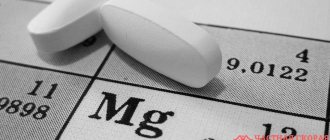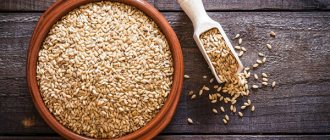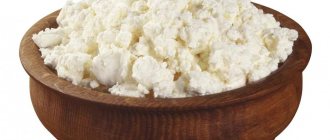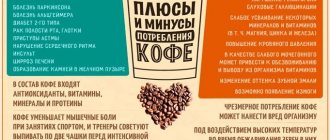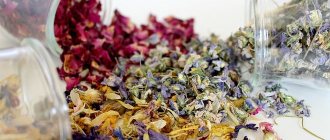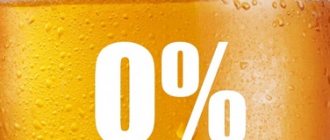| During Soviet times, hematogen was a dessert. And many modern children do not even know what it is or what it consists of. Hematogen was part of the diet of soldiers during World War II. It was prescribed to children who were treated in a hospital, and was also recommended to people of retirement age. |
- What is hematogen
- Hematogen: composition
- Action of hematogen
- The benefits of hematogen
- Harm of hematogen
- Hematogen during pregnancy
- How to use hematogen
- Contraindications for taking hematogen
- How to choose a hematogen
What is hematogen
Now hematogen looks a little different.
In its composition you can find various additives: natural and chemical. Today it is allowed to be sold not only in pharmacies, although previously this was a strict norm. Hematogen has retained its basic properties for decades. It is prescribed and recommended to stimulate hematopoietic processes. You cannot eat it by your own decision unless there are appropriate indications. It is also important to maintain a certain dose. In the instructions you can see and make sure that hematogen is a drug for hematopoietic processes. That is, it cannot be considered a candy or dessert that can be eaten whenever and as much as you want. In the pharmaceutical classification today it belongs to dietary supplements. Hematogen is similar in appearance to chocolate, but its taste and structure are different.
Hematogen: composition
The basis of any hematogen is cattle blood, purified from microorganisms and defibrated. But often manufacturers use purified hemoglobin rather than blood. In order for the medicine to have a pleasant taste, its composition includes:
- sugar
- molasses
- sesame
- chocolate
- nuts
- honey
- candied fruit
- coconut flakes
- condensed milk
- vanilla, etc.
The word “blood” will not be written in the composition; you will see “food albumin” there. This phrase hides blood protein.
Hematogen contains microelements, macroelements and nutrients that have a positive effect on hematopoietic and other processes in the body. As for the carbohydrate composition of hematogen, sugars can be found in it:
- dextrin
- maltose
- sucrose
- glucose (most often)
As for fats, hematogen also contains them. These are animal fats and vitamins that dissolve in fat. Hematogen also contains iron, which the body needs for iron deficiency anemia. As for vitamins, you will mainly find vitamins A and C in this medicinal supplement. But other options are also possible. Then the vitamin will be indicated on the package. Iron is not the only mineral that hematogen contains. There are sodium, potassium, chlorine and calcium. They are present there in small quantities, therefore they cannot fully cover the body’s daily needs. Everything else in hematogen is auxiliary substances, which for the most part are designed to improve the taste of the product.
Hematogen - “giving birth to blood”
Hematogen is a multivitamin complex consisting of many different vitamins that are naturally found in food and other natural sources.
Hematogen translated from Greek means “giving birth to blood.” Hematogen is a drug consisting of a large amount of iron. It quickly binds to protein components and completely dissolves in the gastrointestinal tract. It also allows the formation of red blood cells.
It consists of processed defibrinated cattle blood of dry form with the addition of various components that improve its taste (coconut flakes, ascorbic acid, sugar, chocolate, condensed milk, honey, nuts). During the special processing of cattle blood, the beneficial properties contained in it remain unchanged, so hematogen is made in the form of small, pleasant-tasting tiles.
Composition of hematogen
Hematogen contains a complex of nutrients (carbohydrates, fats, proteins), but the main ingredient is still iron, without which the formation of erythrocytes (red blood cells) becomes simply impossible.
Iron is commonly found in foods, and is especially abundant in red meat. In the body, iron is part of hemoglobin and myoglobin. Hemoglobin carries oxygen through the blood to organs and tissues, while myoglobin helps muscle cells store oxygen.
Iron in hematogen is contained in the form of hemoglobin, which is quickly absorbed by the body. In addition, it contains a lot of vitamin A and a large number of amino acids.
Who needs hematogen and when?
Hematogen is needed:
- patients with anemia and anemia;
- to replenish the body with iron and multivitamins;
- during pregnancy (not in all cases);
- in the treatment of blood diseases;
- to improve nutrition (especially for children);
- for disorders of the digestive system;
- in case of poisoning;
- for preventive purposes in case of vitamin deficiency and poor absorption of food.
The benefits of hematogen
The benefit of hematogen is that it improves vision, digestion, metabolic processes, and strengthens the mucous membrane of organs. It has an excellent effect on the respiratory system, increasing the stability of the bronchial membranes. It is useful in childhood and adolescence, especially for children suffering from prolonged lack of appetite. It should also be taken by adults with a lack of vitamins in the body.
Hematogen is used for the prevention and treatment of:
- low blood hemoglobin level;
- visual impairment;
- growth retardation;
- balanced nutritious nutrition;
- influenza and HRVI;
- various infectious diseases;
- chronic diseases.
Good benefits in addition to taking hematogen as the main treatment for diseases of the gastrointestinal tract, gastritis and stomach ulcers, and vision organs.
Harm of hematogen
As the saying goes, “A lot of good things are also bad.” Although the harm of hematogen occurs infrequently, it is sometimes possible. First of all, this can happen due to an overdose or uncontrolled use, incl. and with incompatible drugs. For more information about the harm from taking hematogen and how to avoid it, see below.
How to take Hematogen correctly
The benefits of hematogen, as well as the harm, greatly depend on the correct dosage. Before starting treatment with hematogen, in order to avoid side effects, it is recommended to consult a doctor (in some cases it is not effective for certain types of anemia that are not associated with iron deficiency). Since hematogen contains a lot of carbohydrates that are easily digestible, it is prohibited for people prone to obesity and diabetes mellitus. Pregnant women should take Hematogen with caution, because it can harm the fetus during development. Also, during pregnancy you should not use hematogen due to the high likelihood of a sharp increase in body weight; it also contributes to blood thickening, leading to the formation of blood clots. It is harmful to use hematogen in the treatment of metabolic disorders of the body, because it is a source of substances similar in composition to human blood. Hematogen is produced based on a product of dry plasma or blood serum - black albumin. The uniqueness of albumin lies in the easy digestibility of iron and protein, which does not cause stomach irritation. If nausea occurs, you should immediately stop using hematogen, because These are the first signs of side effects that cause symptoms of fermentation in the stomach.
Hematogen causes almost no side effects, having in most cases a mild effect on the body. It is advisable to take it not only for treatment, but also as a preventive measure, especially for children during the period of active growth.
The recommended daily dose of hematogen for children over 6 years of age is 30 g, for adults – 50 g.
What is important to know about hematogen?
Never take more than the recommended dose of Hematogen.
Avoid any other multivitamin products for 2 hours before or after taking Hematogen.
Taking these vitamin supplements at the same time may result in a vitamin overdose or more serious side effects.
Call your doctor right away if you think you have taken too much of this medicine.
Overdosing on vitamins A, D, E, K can cause serious or life-threatening side effects.
Symptoms of an overdose of these vitamins, and that is, of the hematogen itself, may include:
- severe stomach pain;
- vomiting;
- bloody diarrhea;
- cough with blood;
- constipation;
- loss of appetite;
- hair loss;
- peeling of the skin;
- sensations of warmth and tingling in the body;
- changes in the menstrual cycle;
- weight loss;
- severe headache;
- muscle and joint pain;
- backache;
- blood in urine and stool;
- black and tarry stools;
- pale skin;
- light bleeding;
- weakness;
- shallow breathing;
- weak and rapid pulse;
- pale skin, blue lips and seizures.
Hematogen should not be taken with milk, other dairy products, dietary supplements, calcium, or antacids containing calcium. Calcium may make it difficult for the body to absorb certain Hematogen ingredients.
What should you know before using Hematogen?
Hematogen and some vitamins can cause serious or life-threatening side effects when taken in large doses. Therefore, you should not take more than two tablets per day. If you have any medical conditions, first of all, consult your doctor before taking. Do not take Hematogen uncontrolled if you are pregnant or if you are planning to become pregnant in the near future. Some vitamins and minerals can harm an unborn baby if taken in large doses. Multivitamins can pass into breast milk and harm the baby. Do not use Hematogen without a doctor's prescription if you are breastfeeding.
How should I take Hematogen?
Do not consume too much hematogen, because... it can cause side effects such as stained teeth, increased urination, stomach bleeding, uneven heartbeat, confusion, and muscle weakness.
Always read what the drug contains.
Take Hematogen with a full glass of water.
It is good to take Hematogen with food if it does not harm the stomach.
During treatment, it is important to take Hematogen regularly to get maximum benefit.
Hematogen should be stored at room temperature away from moisture and heat.
What should I avoid while taking Hematogen?
While taking Hematogen to prevent self-harm, you should:
- avoid taking any other multivitamin preparations within 2 hours before or after taking Hematogen;
- do not take hematogen in combination with other vitamins;
- Avoid regular use of salt substitutes in the diet when taking multivitamins containing potassium;
- take Hematogen with caution if you are on a low-salt diet;
- Avoid taking antibiotics within 2 hours before or after taking Hematogen. This is especially important when taking antibiotics such as ciprofloxacin, doxycycline, levofloxacin, minocycline, norfloxacin, ofloxacin, tetracycline;
- Avoid taking multivitamins 1 hour before or 2 hours after eating fish, meat, liver, whole grain products, cereals, because Some foods can make it difficult for the body to absorb iron;
- Do not take Hematogen with milk, other dairy products, calcium supplements, or antacids containing calcium. Calcium can make it difficult for your body to absorb certain ingredients and multivitamins.
Side effects of using hematogen
The harm of hematogen can affect both very quickly and be detected a few hours after ingestion. Seek emergency medical help immediately if you experience any of the signs of the side effects listed below:
- allergic reactions on the skin;
- hives;
- labored breathing;
- swelling of the face, lips, tongue, or throat;
- bright red blood in the stool;
- chest or throat pain when swallowing.
- Less serious side effects may include:
- constipation;
- diarrhea;
- nausea, vomiting, heartburn;
- stomach pain or upset stomach;
- black or dark-colored stools or urine;
- temporary staining of teeth;
- severe headache;
- unusual or unpleasant taste in the mouth.
This is not a complete list of side effects that may occur when taking Hematogen.
What drugs are not compatible with taking Hematogen?
Vitamin and mineral supplements may interact differently with some medications. Therefore, before taking Hematogen, tell your doctor about the medications you are taking. You should be especially careful if you are taking diuretics (diuretics), heart or blood pressure medications, tretinoin (vesanoid), isotretinoin, penicillamine, trimethoprim, sulfamethoxazole, nonsteroidal anti-inflammatory drugs such as ibuprofen, naproxen, diclofenac, indomethacin, ketoprofen, and etc. The harm caused by the combined use of hematogen and another drug may manifest itself in the form of the symptoms listed above, but in some cases it may be different.
This is not a complete list of drugs that are incompatible with taking Hematogen. Tell your doctor about all prescription and over-the-counter drugs you use, including all vitamins, minerals, herbal products, and drugs prescribed by other doctors, to prevent possible harm from taking Hematogen with another drug.
Where can I get more information about Hematogen?
You can get more detailed information about hematogen and its properties from your pharmacist.
RESULT
Hematogen is a drug that is produced from the blood of cattle. It tastes and looks like sweetness due to the addition of food ingredients.
Now let’s very briefly sum up the benefits and harms of hematogen.
Hematogen contains iron, valuable amino acids for the body, vitamin A, as well as fats and carbohydrates.
Benefits of hematogen: increases hemoglobin, improves vision, digestion, metabolic processes, strengthens the mucous membrane of organs, has a positive effect on the respiratory system, is useful for children suffering from lack of appetite, adults with vitamin deficiency.
When hematogen is used: for diseases of anemia and anemia, for inflammation of the body with iron and multivitamins, during pregnancy (not always), for diseases of the gastrointestinal tract, gastritis and stomach ulcers, to improve nutrition, to prevent vitamin deficiency and poor absorption of food, and also a doctor may prescribe it in many other cases. Although now doctors more often prescribe a complex of multivitamins, rather than hematogen, for general strengthening of the body during illness. The harm of hematogen primarily lies in overdose or uncontrolled use. Also, you should not use it during breastfeeding without a doctor’s prescription and when treating metabolic disorders of the body. Hematogen can be harmful for people with high blood hemoglobin or hypovitaminosis (exceeding the norm of vitamins), thrombosis. It is important to consult a doctor if you take other medications (multivitamins, mineral supplements, antibiotics, etc.) while taking Hematogen, in order to avoid side effects.
Healthy lifestyle office
Action of hematogen
It is not for nothing that this drug is prescribed if tests reveal very low hemoglobin. Hematogen is a source of iron. And it compensates for low hemoglobin levels. Iron is absorbed in the intestines and from there enters the blood. There it takes part in the formation of the hemoglobin protein, which is the essence of the hematopoietic process.
Iron increases the amount of ferritin protein, which binds excess iron so that it does not poison the human body. This is how “depots” are created, that is, iron reserves.
The benefits of hematogen
A doctor can prescribe hematogen to a child, teenager or adult not only when a disease is detected, but also in a transient state (the state before the disease, when warning signs of a particular pathology appear). As already noted, hematogen is used for disturbances in the process of creating blood in the body. It has a fairly high nutritional value.
Conditions and diseases for which hematogen is useful:
- general exhaustion of the body (under the influence of poor ecology, stress, physical or prolonged mental stress)
- Iron-deficiency anemia
- gastrointestinal ulcers, in which bleeding is one of the symptoms
- lack of vitamins
- visual impairment due to lack of vitamin A in the body
- The child's growth is too slow and there is insufficient weight gain
- suffered serious illnesses
Harm of hematogen
Some people really like hematogen and consume it as a dessert without a doctor’s prescription. But remember that you should not eat this medicine like regular food. The most obvious consequence: excess (excess accumulation) of iron. In such cases, free radicals are produced, which can damage cell walls or even contribute to their destruction.
If the amount of iron in the body is higher than normal, cholesterol begins to actively deposit in the vessels. And this, as we have already written, is a factor in the development of such a disease as atherosclerosis. A large amount of hematogen causes fermentation processes in the intestines. This can cause symptoms such as nausea and even vomiting, dizziness, and loose stools.
Hematogen during pregnancy
Pregnant women have a high need for iron. This is important for the placenta to form normally, the fetus to develop properly, and also for the normal state of the expectant mother’s body. The source of iron should be external, not a ferritin depot. Most iron is lost during childbirth, when a woman bleeds to death. Iron is also “sucked out” by the baby during breastfeeding.
In pregnant women, the volume of freely circulating blood increases by almost 1.5 times; accordingly, more iron is needed than before conception. In the second and third trimester (from the 4th to the 9th month of gestation) you need even more iron than in the first three months. During this period, there is a very high risk of developing iron deficiency anemia. For prevention, you need to ensure that the pregnant woman consumes 27 mg of iron per day. To do this you need to eat hematogen. But it cannot be the only source of the required element. Good nutrition is also important. Meat, fish, liver, chicken eggs, cereals and green vegetables cannot be excluded from a pregnant woman’s diet. Sometimes you don’t want them, but remember that both you and your unborn child need them.
But regarding the use of this dietary supplement, you should definitely consult with your doctor, who will determine the optimal individual dose. Even during pregnancy, you cannot eat hematogen uncontrollably, because an excess amount of it will negatively affect the baby’s body. Excessive intake of hematogen causes blood thickening, which can lead to thrombophlebitis.
How to increase hemoglobin in the blood
13.09.2021
Iron deficiency is one of the most common diseases of modern women, which we, in general, do not consider serious.
Well, think about it, hemoglobin is low, who has it normal now? We feel good, we can work, so there’s nothing to worry about!
But doctors say that this is not scary for the initiated. After some time, weakness, malaise, headache,
attacks of lightheadedness, muscle weakness and other “charms”, and along with them, performance decreases.
Anemia is characterized by hair loss, which becomes brittle and dull. Nails become brittle and dull. So don't take it lightly
refers to a decrease in hemoglobin levels in the blood . And if anemia is detected during an annual medical examination and the doctor insists on
drug treatment - be sure to undergo treatment. And if you find the first signs of anemia, then consult a doctor in order to establish
the reason for low hemoglobin, because gynecological diseases, problems with the gastrointestinal tract (hidden bleeding), and hemorrhoids .
Based on severity, anemia is divided into:
- light (hemoglobin 90 – 110 g/l),
- medium (hemoglobin 70 – 90 g/l)
- severe (hemoglobin below 70 g/l).
Normally, hemoglobin in women should be at least 120 g/l. Of course, it is necessary to strictly follow the doctor’s and take the medications prescribed by him.
But for some women, iron supplements cause nausea , vomiting and constipation, as a result of which they are in a bad mood, don’t want to work, and life becomes unpleasant.
Such sufferers can try to raise hemoglobin with recipes from traditional medicine.
Folk remedies for anemia
Mix 2 tablespoons of grated white cabbage stalk, 2 tablespoons of finely grated fresh burdock root, 1 tablespoon
a spoonful of grated carrots and 1 tablespoon of grated peony root. Add honey to the mixture to taste and take 2 - 3 tablespoons 3 - 5 times a day 1 hour before meals.
Mix chopped rose hips and wild strawberry leaves in equal proportions. Then pour 1 tablespoon of the mixture with 1 glass of boiling water, leave for 2 - 3 hours
let it brew, strain and drink 0.25 – 0.5 glasses a day.
In the same way, you can prepare and take infusions of stinging nettle, string of tripartite, lungwort, garden spinach, and dandelion.
All these herbs are rich in iron, copper, manganese, cobalt, ascorbic acid, riboflavin, and organic acids, which provides their hemostimulating effect.
Nutrition
Those suffering from iron deficiency anemia should not go on a strict diet and under no circumstances switch to vegetarianism. Important nutritious nutrition.
You should definitely eat meat dishes, as they contain protein, which improves the absorption of iron, and it is better to bake or stew meat. Besides,
Meat should be eaten with plant products - this is the only way to absorb iron from meat better. There is a lot of iron in beef , fish, eggs and buckwheat. Iron absorption
increase apples, apricots, pomegranates, cherries, cherries, cauliflower, horseradish, dill. It is advisable to drink apple juice daily - up to 1.5 liters per day.
You can drink dry natural wine, but no more than 1 glass per day.
For anemia, moderate physical activity is also necessary, walking is best.
Published in Therapy Premium Clinic
How to use hematogen
Hematogen today can be purchased as bars, tiles or chewing strips. The dosage can be different: from 20 to 50 grams. Children from 3 to 6 years old can take 5 grams 3 times a day. Children from 6 to 12 years old are prescribed two doses of 10 grams. Children from 12 to 18 years old can take no more than 10 grams of hematogen 3 times a day.
Adults can take 5-15 grams 2-3 times a day. Pregnant women are given a maximum of 50 grams per day (various numbers of doses). People of any age can take Hematogen for 14 to 21 days (course). If you are pregnant, ask your doctor about the course of taking this dietary supplement; there may be individual differences. Hematogen must be taken between meals to ensure complete absorption of nutrients.
Hematogen can be washed down with clean water. But you don’t need to drink it with milk or other dairy products, as this will worsen the absorption process. You cannot take vitamins in courses together with hematogen. If you need to take other medications in parallel with the course of Hematogen, consult your doctor. This is a serious question, although you may mistakenly think otherwise.
“Chocolate with blood”: Is hematogen useful and how to eat it correctly
Americans were amazed that Russians eat “bull’s blood candy.” A doctor from Russia was surprised by the habit of eating hematogen, saying that it has no benefit. The media came out with the headlines “Doctors spoke about the dangers of hematogen.” Constantinople is being sorted out
On April 1, pediatrician, allergist and gastroenterologist Tatyana Bandurina gave a comment to the radio station “Moscow Speaks” about the popularity of hematogen in Russia. The doctor criticized his consumption of food. Despite the fact that this happened on April Fool's Day, everything was said absolutely seriously.
Strange habit
This habit shocks me, hematogen is on the list of products that I categorically do not recommend consuming at all,
- said the expert. To argue her position, she stated that modern hematogen, mainly, in addition to processed bovine blood, contains a lot of sugar and other fillers, which is why it is not beneficial at all. According to her, now it’s just a snack that helps get rid of hunger for a certain period of time by increasing glucose levels.
Bandurina admitted that hematogen really helps with anemia and was necessary “at one time” when there was a shortage of certain products. Now people can freely buy iron-containing foods, but sweet foods like hematogen cause their stomachs to swell, gastrointestinal dysfunction appears, and allergies begin. The expert noted that the benefits of bovine blood can be obtained, for example, from blood sausage or similar products.
Photo: LestertairAnnashou / Shutterstock.com
American "investigation"
The reason for the corresponding question to the expert was an article in Vice magazine, which the author, American Mark Hay, dedicated specifically to hematogen. The text was titled something like this: “How Russia fell in love with sweet tiles made of blood.” In his material, the journalist talks about how widespread this product was in the Soviet Union, while in the current century the popularity of hematogen has slightly decreased. However, it is noted that you can buy a “bar with a taste of iron” in any country in the post-Soviet space.
At the same time, Hay is surprised that hematogen as such was invented in Switzerland in the 1890s, after which nothing was heard about it for a long time, and it “surfaced” about 30 years later in the USSR. The author of the article suggested that abroad they were trying to move away from such natural products towards vitamins and preparations containing the same iron, and the “declined economy” of the post-revolutionary state implied benefiting from everything that was possible.
Before the Great Patriotic War, hematogen was produced in the form of syrup, which complicated its transportation and storage. However, soldiers received hematogen in solid form as part of their food rations. Since then it has been made in the form of bars or candies. So why is doctor Tatyana Bandurina so categorically against eating this popular dietary supplement?
Photo: Lestertair / Shutterstock.com
Not all hematogens are equally useful
The main reason is that some manufacturers add flavors, dyes, and various components to the main components of hematogen - albumin, sugar, molasses, condensed milk and vanillin - to reduce production costs. Depending on the mass fraction of “extra” components, the benefit of hematogen decreases and the harm increases. And this is not the worst case yet. Increasingly, bars with related names like “Hematogenka” appear on store shelves and even pharmacies. And inside there is no smell of 2.5-5% albumin, as per the standards. The difference is approximately the same as that of a product called “Condensed Milk” from “Whole Condensed Milk” indicating GOST. Therefore, on the one hand, the expert is right that there is a high probability of running into a product that is not actually a hematogen, but only looks like one, or a tile whose manufacturer does not follow the “classical” recipe.
Nevertheless, it is wrong to deny the benefits of the “correct” hematogen. Black albumin, which is part of hematogen, provides the body with iron. By the way, the same Mark Hay noted in the mentioned article that in this form the substance is absorbed better than in the form of tablets, for example Hematogen FA, which can be found in the USA. In addition, albumin is rich in amino acids and vitamin A. It has a general strengthening and tonic effect on both children and adults.
Tips for purchase and use
So what do you need to know to buy a useful hematogen? Firstly, you need to remember that hematogen is not a medicine, but a dietary supplement, and therefore can really be sold not only in pharmacies. Secondly, let us recall the composition of the product according to GOST: black food albumin, starch syrup, condensed milk, granulated sugar and vanillin. The ideal option to purchase is a bar containing only these components. Thirdly, the excess calorie content of hematogen is a myth. In any case, compared to chocolate, it is on average one and a half times higher in calories.
By the way, some manufacturers add vitamins B and C to hematogen. It is believed that this helps better absorption of iron. It is not difficult to guess that such bars will cost more. It is recommended not to eat Hematogen immediately after or immediately before a meal, as this may reduce the benefits of consuming it. For the same reason, purchasing hematogen with raisins or nuts or filled with glaze is highly questionable.
You also need to know that if you buy hematogen directly to replenish iron deficiency, then you need to take it over a course of a certain duration (usually from 2 to 6 weeks) and make sure that there is no overdose. Adults are recommended to eat no more than one bar per day (about 40–50 grams), children - no more than half. “Children’s” hematogens are often immediately released in individual candy packaging of 20–25 grams.
There are also contraindications. Hematogen should not be used to prevent iron deficiency in patients with diabetes and those who are overweight. As for an overdose, it can manifest itself in the form of side effects such as gastrointestinal upset, headache, and difficulty breathing. An excess of iron in the body can lead to the formation of blood clots in blood vessels and a decrease in blood pressure.
To summarize, we note that hematogen is a decades-proven remedy for the prevention of anemia and for existing iron deficiency. The main thing is to carefully read the information on the label and buy hematogen made in accordance with GOST, with a minimum of additives.
Contraindications for taking hematogen
The main conditions and diseases in which it is better to avoid using hematogen:
- obesity (BMI over 30)
- diabetes
- age less than 3 years
- thrombophlebitis
- varicose veins
- metabolic disorders
- anemia (not iron deficiency)
- individual sensitivity to hematogen components, due to which there may be allergic reactions, up to very dangerous Quincke's edema
Hematogen, like all drugs, has its side effects. They mainly concern the gastrointestinal tract. This dietary supplement can irritate the mucous membrane of the stomach or intestines and activate the vagus nerve. Therefore, an unpleasant feeling in the abdomen, nausea and vomiting may appear.
Hematogen: composition, benefits for the body, rules of administration
Hematogen is a prophylactic agent that can be used as an additional source of iron. According to WHO, iron deficiency is one of the most common health problems on the planet[1]. The problem of element deficiency is primarily a nutritional problem, so to prevent deficiency it is necessary to adjust the diet[2]. For preventive purposes, you can also use the dietary supplement Hematogen[3]. We will talk about what hematogen is and how it can be useful to the body in the article.
What is hematogen made from: nothing extra
The history of hematogen dates back to 1890[4]. The medicine, first developed and released in Switzerland, was called “Adolf Hommel's hematogen”, or “Hommel's medicine” (named after its inventor). It was a liquid based on ox blood and egg yolk. In Russia, hematogen began to be produced in 1917, and seven years later large-scale production began. Since then, the product has undergone many changes - both in release form and in composition.
Now there are a huge number of hematogen variations. But what is included in the “correct” hematogen?
What is hematogen made from?
The composition of the Soviet, that is, classical, hematogen includes five basic elements: black food albumin (a protein obtained from purified and dried bovine blood), starch syrup, condensed milk, sugar and vanillin [5]. Black food albumin - it is this substance that helps replenish the need for iron - ideally should make up at least 3-5% of the total mass of the product.
Manufacturers still retain the traditional recipe, but strive to make it more diverse and effective: the composition of “natural” hematogen can be supplemented with vitamins B and C, minerals such as potassium and sodium, as well as substances that promote better absorption of black albumin[6].
What should not be in hematogen?
Not all innovations in the classic recipe can be considered justified from the point of view of benefits. Undesirable components include dyes, palm oil, and flavorings. Such ingredients may impair the absorption of iron from black albumin and lead to allergic reactions. Some unscrupulous manufacturers reduce the specific gravity of the active substance (albumin) by increasing the mass fraction of additional components. You should not count on any benefits from taking such a hematogen.
Another option for updating the usual composition is hematogen with different flavors, for example, coconut flakes, seeds, candied fruits. Such components improve the taste characteristics, but can negatively affect the beneficial properties of the product. In addition, you need to remember that hematogen is a high-calorie product, and additional sweeteners only increase its energy value.
Benefits and harms: let's talk frankly
Hematogen was originally used as a drug for diseases of the hematopoietic organs and iron deficiency anemia. The drug gained particular popularity during the war: hematogen was needed to maintain the health of soldiers. And the high calorie content of the drug helped solve the problem of nutritional deficiency, which was also relevant in the post-war period. Now the high calorie content of hematogen is considered by many consumers rather as a disadvantage.
How is hematogen useful?
According to the World Health Organization[7], iron deficiency is the main and most common type of nutritional disorder. Moreover, the manifestations of this condition are more difficult to notice than, for example, the symptoms of protein-energy deficiency. WHO notes that prevention efforts should begin with a nutritional supplementation program[8]. According to a modern study, supplements taken for 12 weeks helped increase hemoglobin levels[9].
The dietary supplement Hematogen can be used as an additional source of iron. Hematogen contains a unique form of iron: it is absorbed quite quickly and interacts with proteins[10]. The drug can stimulate hematopoiesis[11], help normalize metabolic processes, and influence the hemoglobin content in the blood[12].
The use of hematogen in people at risk for the development of iron deficiency conditions is relevant: these are primarily preschool children, women (especially during the postmenopausal period) [13,14], athletes [15], and the elderly.
However, to achieve a positive effect, it is necessary, firstly, to choose a hematogen with the correct composition, that is, with the required mass of black food albumin and a minimum set of unnecessary components, and secondly, to follow the recommendations for use. As a rule, the duration of the course is one to two months - a one-time dose will not bring positive results.
Note: A study conducted in 2015–2016 on a group of students confirmed the beneficial properties of hematogen. Against the background of its daily use (40 grams for 20 days), the antioxidant activity of the blood increased in the subjects, the amount of the enzyme catalase and the protein ceruloplasmin increased. 58% of students noted an increase in performance and an improvement in the general condition of the body[16].
When can hematogen cause harm?
The use of hematogen, like any drug, has its own characteristics and does not exclude unwanted reactions. It should be borne in mind that an overdose of iron is no less harmful than its deficiency. It is a heavy metal and can be toxic to the body if consumed in excess.
Hematogen is quite high in calories. In the classic hematogen composition, the calorie content is approximately 376 kcal per 100 grams[17]. Therefore, the drug may be contraindicated for people with diabetes and carbohydrate metabolism disorders. The use of dietary supplements in children is allowed only with the permission and under the supervision of the attending physician.
The time-tested composition and pleasant taste have ensured hematogen's popularity for many years. In conditions of widespread vitamin and mineral deficiency, taking the drug may be especially relevant. Hematogen can have a beneficial effect on the body's condition and reduce the likelihood of developing iron deficiency conditions.
"Hematogen Fit" - for those who count calories
Ferrohematogen® Fit is a new product with an improved composition: it contains 30% less sugar than regular bars in the Ferrohematogen® line[18].
In addition to black food albumin, sugar, condensed milk, starch syrup and vanillin flavoring, Ferrohematogen® Fit includes useful vitamins and minerals. This dietary supplement can be used as an additional source of not only iron, but also:
- copper, necessary for normal hemoglobin synthesis and the formation of blood cells;
- folic acid, which promotes the maturation of blood elements and the conversion of carbohydrates into energy;
- vitamin C. Ascorbic acid helps strengthen the immune system and facilitates the absorption of iron-containing components;
- L-carnitine, which helps improve metabolic processes;
- vitamin B6, which promotes hemoglobin synthesis.
The energy value of 100 grams of Ferrohematogen® Fit is 298.6 kcal. According to the instructions, children over 11 years of age and adults need to take 50 grams of hematogen per day, which is only 149.3 kcal. For children 7–11 years old, the daily dosage of chewable lozenges is 25 grams, which is 74.65 kcal. The duration of taking Ferrohematogen® Fit is one to two months.
The product is not suitable for people with individual intolerance to elements, diabetes mellitus, carbohydrate metabolism disorders, excess body weight, pregnant and breastfeeding women, and children under three years of age. The use of Ferrohematogen® Fit in children 3–14 years old is possible only with the permission of a doctor.
* dietary supplement. Not a medicine. There are contraindications; consultation with a specialist is required before use.
** Certificate number - RU.77.99.11.003.R.002615.08.20.
All information related to health and medicine is presented for informational purposes only and is not a reason for self-diagnosis or self-medication.
How to choose a hematogen
Under the name “Hematogen” you can find completely different products on the market (in pharmacies or other stores). Some “hematogens” do not contain those substances that should be present to activate the process of hematopoiesis.
Check the composition of the dietary supplement. In the first place there must be “food albumin”. It can be hidden under the names “dried bovine blood” or “black food albumin.” It should be 4-5% of the total weight of the medicinal bar. Try to choose those dietary supplements that contain a minimum of aromatic and flavor additives. These can be natural supplements, they will not cause harm.
Let us once again mention the main thing: hematogen is not a healthy substitute for desserts and sweets. It should not be taken uncontrolled. Choose only high-quality products from pharmacies and take as prescribed by your doctor.
Hematogen cannot cure anemia - but it is delicious!
Hematogen: a healthy treat or a nasty medicine containing bovine blood? American journalist Mark Hay conducted an entire investigation dedicated to hematogen and amazed his compatriots by telling how Russians eat bars containing cattle blood. He is sure that people began to use such a supplement in the Soviet years due to a shortage of both medicines and affordable sweets. Is it possible to be treated with a modern hematogeg? Vesti FM correspondent Marina Kostyukevich conducted her mini-research.
They are still trying to figure out the Soviet “taffy tablet” and disassemble it into its components. Everyone who grew up in the USSR knew: hematogen is not only tasty, but also healthy. Moreover, it is sold in pharmacies. In the Soviet years, children were advised to use several squares of hematogen per day for colds, low weight and anemia.
Today this bar is no less popular. American journalist Mark Hay, who tried it, was amazed that the delicacy contained elements of bovine blood. And it shocked the Americans. He even called Hematogen a product born of “frugality, pragmatism and centralized totalitarian production and distribution.” Of course, such a product is unusual for Americans, since hematogen is an absolutely Soviet invention and has no analogues.
In our country we have always known that it contains the protein albumin. And this does not cause rejection. Rather, on the contrary, says Mikhail Ginzburg, director of the Research Institute of Dietetics and Diet Therapy. GINZBURG: In the Soviet Union there was a problem - a lack of high-quality protein in food. And all ways that could increase the protein content of food were welcomed. Now there is no such problem, but the problem of iron deficiency remains. It would be good, especially for women of childbearing age, to have more iron in their diet. But somehow it turned out that parents give hematogen to their children by inertia.
By the way, there used to be a so-called liquid hematogen for adults. It was prescribed for exhaustion. It was packaged in glass bottles of 250 milliliters. It was also made from bovine blood purified from fibrin, and sugar and aromatic substances were added. Nevertheless, in all these animal blood products there is a minimum. Literally drops. And this is more of a delicacy than a medicine, says hematologist, chairman of the Moscow Scientific Society of Therapists, Professor Pavel Vorobyov. VOROBYOV: There is no iron there. This is bovine blood mixed with milk, honey, and ascorbic acid. It's nothing. Sweet candies. Meat with sugar.
If you look at a real hematogen, made according to those Soviet standards, you can be convinced that it actually contains a lot of ingredients. We read: sugar, condensed milk, starch syrup, black food albumin, glycerin, water, ascorbic acid, ferrous sulfate, vanillin, pyridoxine hydrochloride, copper sulfate, folic acid. A bit of everything. In case of serious diseases - iron deficiency, anemia - hematogen, of course, is powerless! And when the pharmacy advises you to buy hematogen to raise hemoglobin levels, this is a deception, warns Pavel Vorobiev. VOROBYOV: Essentially, a lie. Because there is little iron there. This is essentially the same as eating a piece of meat or black pudding. But this is not a way to treat iron deficiency conditions! Because food cannot raise hemoglobin levels in case of iron deficiency. Only with the help of medications that contain a lot of iron. Instead of hematogen, you need to eat a piece of meat. But if a person has an iron deficiency, then meat will not help him either. Need medicine.
And today hematogen is one of the most popular dietary supplements. It is on the display window of every pharmacy. Modern samples contain a variety of additives: raisins, dried berries, nuts. However, such a hematogen is very far from its prototype. Very often it does not contain a drop of animal blood at all. In this case, it is just toffee, nothing more.
